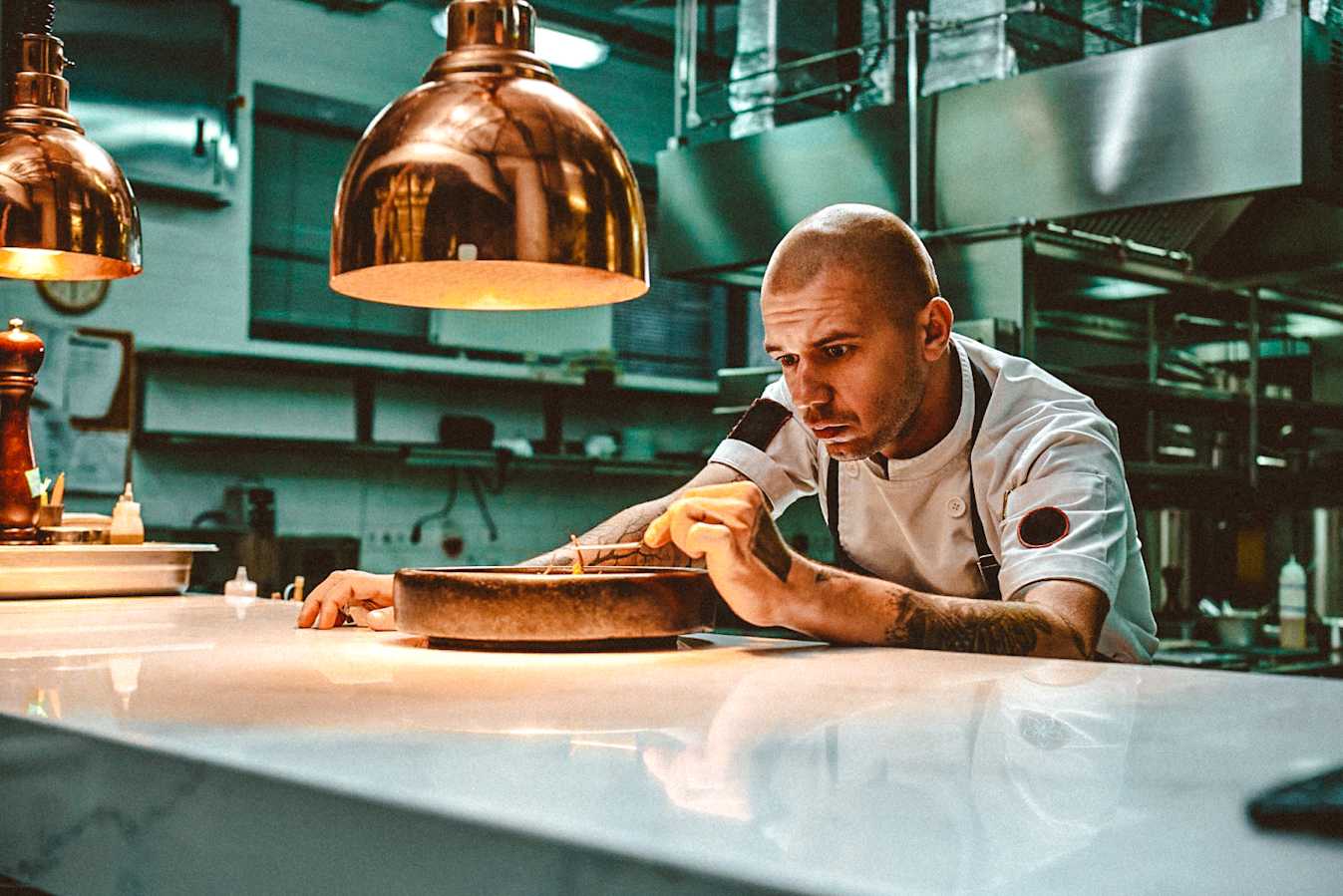How To Fight the Epidemic of Chef Burnout

Even before kitchens experienced unprecedented staffing shortages as a result of the recent pandemic and the Great Resignation that followed it, chefs were already some of the most overworked people on the planet. Though things have stabilized to a certain extent, chef burnout is still on the rise.
For restaurant owners, managers, and all of us who care about those who make it possible to enjoy a meal out, cooking burnout is a pressing problem. So, why does chef burnout happen, and what can be done to avoid cooking burnout? Let’s dig into it.
Why Does Chef Burnout Happen?
Cooking can be a high-intensity, high-stress job. After all, the fate of the restaurant is arguably on a chef’s shoulders each and every day. Having a role with so much responsibility, they’re not always able to take time off to rest and recuperate. Even when the kitchen isn’t “theirs” to manage, cooks often work long hours, many times giving up their weekends and holidays. How to prevent chef burnout in such conditions? Read on.
How To Fight Chef Burnout
Firstly, you can try to nip a chef’s cooking burnout in the bud by checking in with them on a regular basis. In fact, the very act of you asking your restaurant’s chefs how they’re doing, how they’re feeling, and/or if they feel their workload is too much may be enough to stave off any impending chef burnout—at least, for the time being.
Sometimes, though, you also need to try other ways to fight cooking burnout.
Get Chefs To Take Time Off
Employees of any business tend to be more satisfied when they feel their employers care about their well-being; chefs are no different. Talking with your chefs can also give you a sense of whether you need to enforce a policy of taking time off if it seems your chefs are on the verge of cooking burnout. Chefs who are especially passionate about their work sometimes need a little push to engage in self-care!
So, as often as is realistically possible, get your chefs to take time off. If they won’t voluntarily take time off, work it into their schedule. Even just one day a week away can make a world of difference. Remind chefs that they’re just as human as everyone else and need some time away, even a vacation, just like the rest of us.
Create a Culture of Self-Care
You can also encourage a culture of taking time off right from the start when hiring a chef. More companies these days are offering generous paid time off (PTO), even four-day workweeks, and you can explore that kind of strategy in your kitchen. When hiring chefs, emphasize your expectation that those cooking for you will take some time for themselves on occasion.
Keep the Environment Fun
No chef wants to work all night in a kitchen that isn’t fun. Keeping a clean kitchen filled with cooks who love to share their passion for food can help foster an environment of fun. Once passion is gone, burnout is soon to follow, so keep your chefs connected by encouraging them to get to know each other well and share laughs at work. A happy work environment promotes morale among workers, so don’t underestimate its importance.
Acknowledge Your Chefs' Contributions
Sometimes, all it takes is an active acknowledgment of how valued an employee a chef is, either directly or indirectly. This can be in the form of actual and public praise of your chefs or be done more subtly with gift certificates, new kitchen equipment, or bonuses. If your chefs express a desire to improve their craft, offer to subsidize their culinary training; after all, your restaurant will be the ultimate beneficiary of their enhanced skills and knowledge!
Keep Your Kitchen Fully Staffed
Look, things happen. Life can get in the way of someone working a shift, even if they’re otherwise the most dedicated chef around. And, if you’re not prepared for this possibility, you run the risk of an understaffed kitchen. Luckily for you, though, there are ways you can easily find line cooks to work open shifts, so your kitchen is fully staffed and ready for anything.
The harder your chefs have to work, the faster burnout can happen. If there aren’t enough line cooks manning all the different stations, you’re increasing all of your other cooks’ workloads beyond reason—and next time, they may be the ones to suddenly call out. You can minimize the chances of this kind of burnout happening by ensuring that your kitchen is never understaffed.
Qwick Can Help in the Fight Against Chef Burnout!
When it comes to chef burnout, prevention is a better strategy than trying to find a cure. Taking a proactive approach to employee satisfaction is a great idea in general, and with chefs, it can come in particularly handy. One proactive way to head off chef burnout is by ensuring your kitchen is never understaffed, and that’s something you never have to worry about with Qwick.
Qwick easily connects hospitality professionals in need of shifts with those looking to fill them. To see how Qwick can benefit you and help prevent chef burnout, create a free account today!